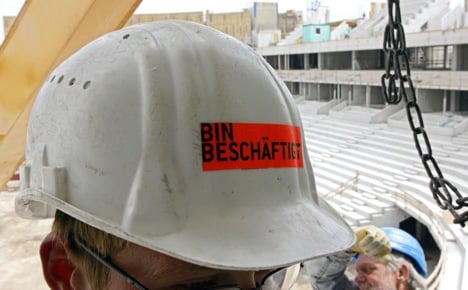The construction union IG Bau and the central association of the German construction industry (ZDB) have both expressed their concern that a cheap workforce could be imported from China should the directive, which is currently being discussed by the European parliament, be passed.
ZDB President Hans-Hartwig Loewenstein told news magazine Focus, “Our market would be on the brink of collapse. It would have catastrophic consequences for mid-sized companies.”
Loewenstein said there were 40 million young, unmarried men in China, hundreds of thousands of whom could come to work on European construction sites. “The German government is not giving us enough support,” complained Loewenstein. “And the main problem is that the EU Commission has no interest in German mid-sized companies.”
There are currently 700,000 people working in Germany’s construction industry. They have a minimum wage of €10.90 an hour in western Germany and €9.50 an hour in the east. According to Focus, this could theoretically be undercut by foreign companies if the EU directive comes into force.
For example, a Romanian company could employ Chinese people at the Romanian minimum wage of €175 a month and put them to work on German building sites.
In the past week, IG Bau boss Klaus Wiesehügel and the head of industry association HDB Michael Knipper both warned of the pressure on the German job market should the directive be passed.
DAPD/bk



 Please whitelist us to continue reading.
Please whitelist us to continue reading.
Member comments